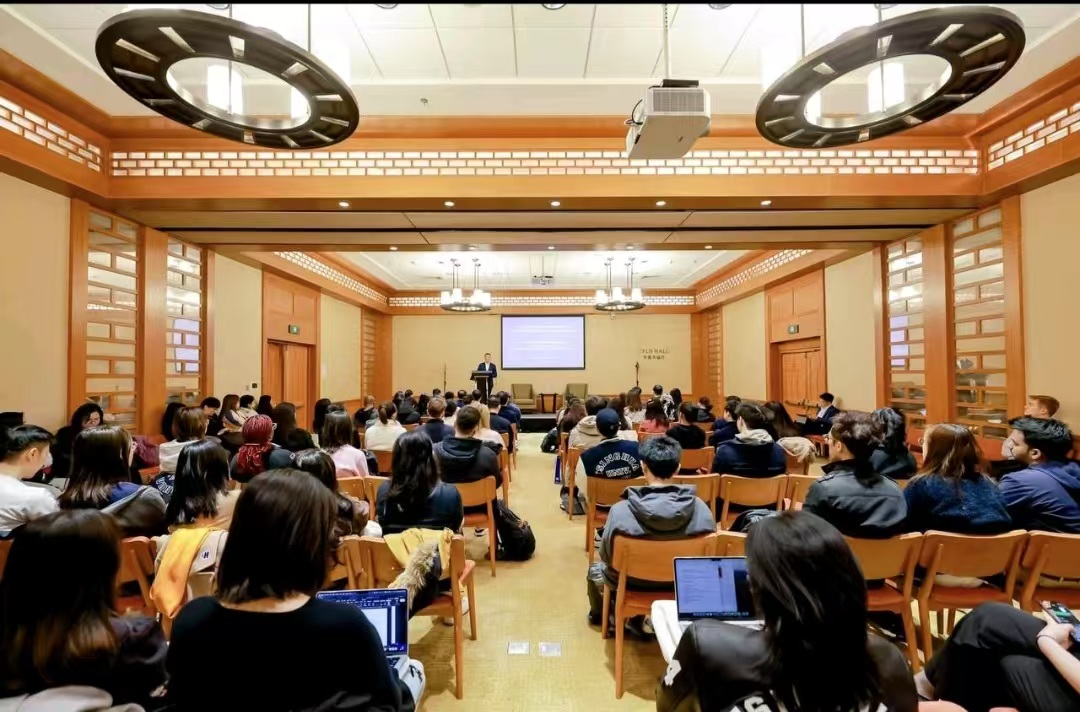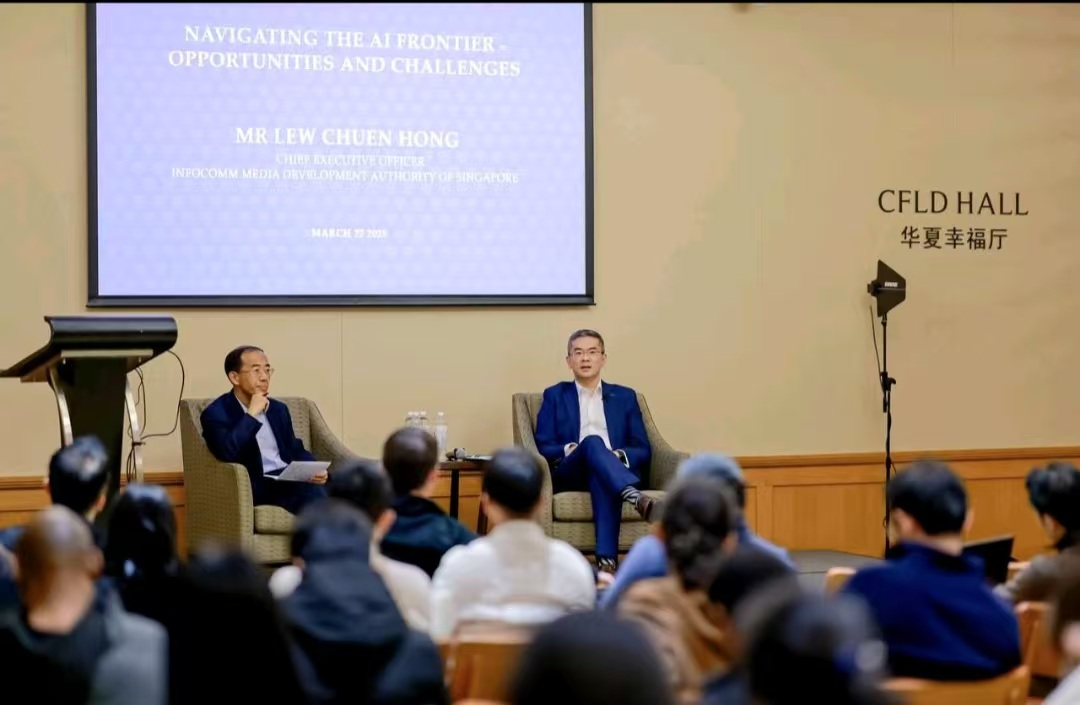On March 27, Lew Chuen Hong, Chief Executive of Singapore’s Infocomm Media Development Authority (IMDA), delivered a speech at Tsinghua University’s Schwarzman College, outlining the transformative potential and governance challenges of artificial intelligence (AI) in a globalized world.

The presentation, titled “Navigating the AI Frontier - Opportunities and Challenges,” was co-hosted by Xue Lan, Dean of the Schwarzman College and Dean of the Institute for AI International Governance (I-AIIG), Tsinghua University, and Liang Zheng, Vice Dean of I-AIIG.
“AI’s progress follows a pattern of ‘punctuated equilibrium’—long gestation periods followed by explosive breakthroughs,” said Lew, citing the rapid advancements driven by Transformer models in natural language processing. He emphasized AI’s dual-edged nature, noting its potential to democratize knowledge through tools like personalized education while warning of risks such as misuse and systemic bias.
Trust, Lew argued, is the cornerstone of sustainable AI adoption. “Regulation alone isn’t sufficient. We need scientific evidence, multi-stakeholder collaboration, and transparent ecosystems to build confidence,” he stated, highlighting Singaporean initiatives such as the Digital Trust Centre and the AI Verify Foundation, a global community for fostering ethical AI development. Lew also praised open-source models for enabling transparency and international cooperation.

During the Q&A session, topics ranged from AI’s role in education to cross-border governance. When asked about AI-assisted teaching, Lew and Liang Zheng concurred that “while AI enhances learning, education must remain centered on cultivating critical thinking and creativity.” On intellectual property, Lew advocated for “adaptive legal frameworks that balance innovation incentives with public interest.” He also called for stronger international alignment on AI governance while respecting regional regulatory differences.